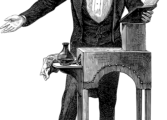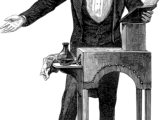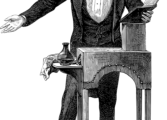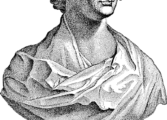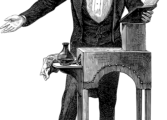George Orwells Animal Farm: A Masterpiece of Political Allegory

Introduction
George Orwell’s Animal Farm is a renowned literary work that captivates readers with its allegorical portrayal of a farm where animals rebel against their human oppressors. Published in 1945, the novella serves as a powerful critique of totalitarian regimes, drawing parallels to the Soviet Union under Stalin’s rule. With its timeless themes and thought-provoking narrative, Animal Farm continues to resonate with readers, offering valuable insights into the nature of power, corruption, and exploitation.
Historical Background

To fully appreciate the significance of Animal Farm, it is crucial to delve into the historical context in which it was written. Orwell, a keen observer of political affairs, penned this work during a time when the world was recovering from the devastating effects of World War II. The juxtaposition of the war-torn landscape and the rise of totalitarian regimes shaped Orwell’s views on power dynamics and authoritarianism.
Development of Animal Farm
Animal Farm was born out of Orwell’s deep concern for the dangers of totalitarianism. Drawing inspiration from his experiences fighting in the Spanish Civil War and his disillusionment with Soviet communism, Orwell crafts a cautionary tale that warns against the corrupting influence of power. The novel’s animal characters represent different factions of society, each imbued with unique traits that mirror human behavior.
Structuring the Text for Enhanced Visibility
In an effort to maximize the likelihood of appearing as a featured snippet on Google searches, the following structure has been designed:
I. Introduction
– Brief overview of Animal Farm and its significance
– Importance for individuals interested in political allegories
II. Historical Context
– Impact of World War II and rise of totalitarian regimes
– Orwell’s personal experiences shaping his worldview
III. Evolution of Animal Farm
– Orwell’s motivation for writing the novella
– Allegorical representation of the Soviet Union under Stalin
IV. Key Themes in Animal Farm
a. Abuse of power and corruption
b. Manipulation and propaganda
c. Loss of individual freedoms
V. Animal Farm’s
Critical Reception and Legacy
– Initial reactions and controversies
– Enduring relevance and influence on political discourse
Key Themes Explored in Animal Farm
Animal Farm explores several central themes that continue to resonate with readers:
1. Abuse of Power and Corruption: Through the transformation of the animals’ egalitarian society into a tyranny, Orwell depicts the insidious nature of power and its corrupting influence on leaders.
2. Manipulation and Propaganda: The novel sheds light on the importance of language and propaganda as tools employed by those in power to control and manipulate the masses.
3. Loss of Individual Freedoms: Animal Farm highlights the gradual erosion of individual freedoms as the pigs consolidate their power, emphasizing the dangers of complacency and the need for eternal vigilance.
Critical Reception and Legacy
Upon its publication, Animal Farm received mixed reviews, with some applauding Orwell’s storytelling prowess and satirical critique, while others criticized its political undertones. Nevertheless, the novel has endured as a classic piece of literature, frequently taught in schools and universities worldwide.
Animal Farm’s legacy extends far beyond its initial publication, with its themes and ideas finding resonance in various political contexts. The novella serves as a cautionary tale, reminding readers of the seductive allure of authority and the potential dangers of unchecked power.
Conclusion
In conclusion, George Orwell’s Animal Farm remains a masterful work of political allegory that continues to captivate readers. Its insightful exploration of power dynamics, corruption, and manipulation ensures its relevance in various historical and political periods. By shedding light on these universal themes, Orwell prompts readers to question authority and remain ever vigilant against the erosion of individual liberties. Animal Farm serves as a timeless reminder of the perils of totalitarianism, reinforcing the importance of a society built on democratic principles.
As we delve into Orwell’s Animal Farm, we are confronted with a powerful narrative, a mirror reflecting our own society’s complexities and challenges. Whether we are ardent art enthusiasts or collectors, Animal Farm’s thought-provoking tale invites us to explore the deeper layers of human nature and the consequences of unchecked power. Through Orwell’s brilliant storytelling, we are compelled to confront the shadows of our own society and question the world we live in.

















